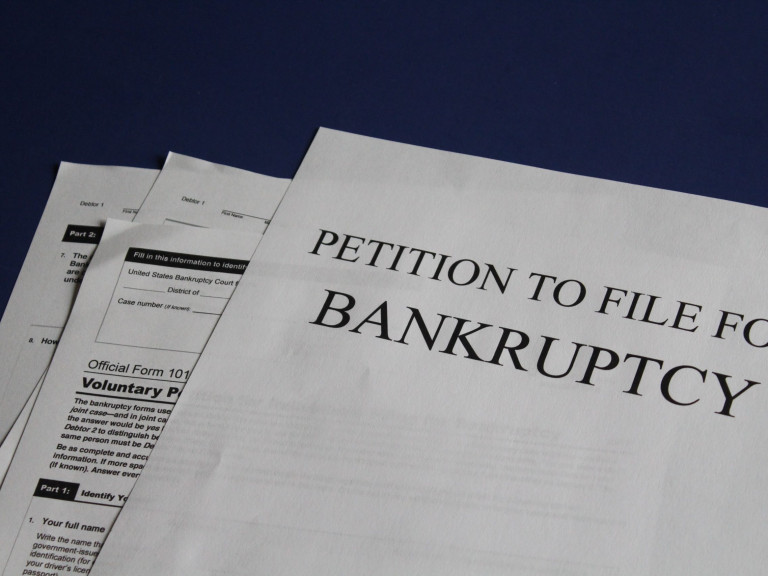SAGINAW CHAPTER 13
Bankruptcy
Attorney
Helping Michigan Residents Build Better Financial Foundations
Chapter 13 provides a solution for people whose financial issues are more complex.
Chapter 13 bankruptcy is less common than Chapter 7, and solves a different set of problems. While Chapter 7 eliminates unsecured debt fairly quickly, Chapter 13 provides a solution for people whose financial issues are more complex.
A Chapter 13 case involves a three to five year repayment plan. The main advantage of a Chapter 13 plan is that it stops collection action while you get caught up over time. Depending on your income and the amount of debt you have, you may be able to discharge some unsecured debt when you’ve successfully completed your plan.
As in Chapter 7 bankruptcy, an automatic stay is typically entered as soon as the case is filed. The automatic stay is an order prohibiting creditors and debt collectors from taking any further collection action for as long as the stay is in effect. That means calls, collection letters, auto repossession, lawsuits and more. The court order can even stop a lawsuit in progress, and end wage garnishment that’s already underway. The stay generally remains in effect for as long as plan payments are current.
Learn more about bankruptcy by downloading our free e-book
Who Files for Chapter 13 Bankruptcy?
In theory, anyone who is within the Chapter 13 debt limits and has sufficient income to make regular plan payments could file for Chapter 13 bankruptcy. But, it’s not the right option for everyone.
Get Knowledgeable Guidance About Bankruptcy
The best source of information about how bankruptcy might benefit you and which type of bankruptcy would best fit your situation is an experienced Michigan bankruptcy attorney. We understand how important it is for you to have accurate information and insights before you make a decision.
Common reasons people choose Chapter 13 bankruptcy:
Chapter 13 bankruptcy may provide a solution for those who have non-exempt assets that would be lost in a Chapter 7 case.
For example, if you own a home that is worth $150,000 and have no mortgage, your home won’t be fully protected by bankruptcy exemptions. Chapter 13 may provide a way to manage debt without losing property.
Chapter 13 bankruptcy provides a way to catch up on secured debt over time, without continued collection activity or risk of losing the property due to the old debt.
This is especially helpful for people who are prepared to make payments, but can’t catch up past due balances fast enough to satisfy the creditor. In some cases, Chapter 13 can stop foreclosure.
Not everyone qualifies for Chapter 7 bankruptcy.
If you have too much income, you may not be eligible to file for Chapter 7 bankruptcy and receive a discharge. In that situation, a Chapter 13 case can take the pressure off, protect you against collection action, and maybe even reduce the amount of debt you ultimately pay.
Who is Eligible for Chapter 13 Bankruptcy?
The type of limitations on who can file for Chapter 13 bankruptcy are very different from the Chapter 7 limitations. For example, you can’t file for Chapter 7 if you make too much money. But, in a Chapter 13 case you must have sufficient income or other sources of funds to make regular monthly payments toward your debts while continuing to make current payments.
There is no limit on the amount of debt that can be discharged in a Chapter 7 case. However, there is a cap on the amount of debt that can be included in a Chapter 13 case. As of June of 2022, that amount is $2,750,000 in combined secured and unsecured debt.
Areas We Serve
- Lewiston
- Alpena
- Hale
- Rogers City
- Cheboygan
- Oscoda
- Pinconning
- Vassar
- Mio
- Cass City
- Breckenridge
- St. Louis
- Chesaning
- Gladwin
- Clare
- Farwell
- West Branch
- Standish
- Tawas
- Oscoda
- Rose City
- Alma
- Grayling
- Roscommon
- Harrisville
- Houghton Lake
- St. Charles
- Port Austin
- Atlanta
- Onaway
- Presque Isle
- Lupton
- Hale
- Sterling
- Unionville
- Sebewaing
- Bay Port
- Caseville
- Cass City
Chapter 13 Bankruptcy FAQs
Generally, you keep your car (and other assets) in a Chapter 13 case. Depending on the amount of equity in your car, you may have to build some additional funds into your repayment plan to “pay for” the non-exempt equity.
If you have a loan on the car, you may even be able to lower the amount you pay. This will depend on how long you’ve had the vehicle, how much the car is worth, and how much you owe. Your bankruptcy attorney can explain how this works in greater detail.
You may also choose to surrender your car in your Chapter 13 case. If you choose to give up your car, the lender will sell it and apply the funds received to the amount you owe. If it doesn’t cover the full balance plus costs of sale, the remaining balance will go into your bankruptcy plan as unsecured debt. Unsecured debt is treated differently than secured debt and may be partly dischargeable after you’ve made all plan payments.
The automatic stay in either Chapter 7 or Chapter 13 bankruptcy can stop foreclosure temporarily. For those looking for a longer-term solution, Chapter 13 bankruptcy may be the answer.
Homeowners who can make their regular monthly mortgage payments and afford to make payments toward the past-due amount may be able to build the past-due balance into a Chapter 13 repayment plan. That means paying off the delinquent amount over three to five years. And, as long as the repayment plan is in good standing, the automatic stay will prevent the lender from taking any further action.
In some cases, it may be possible to purchase a home while still in a Chapter 13 bankruptcy plan. How soon a bankruptcy filer can finance a house depends on a variety of factors, mostly having to do with how well their finances are managed after filing.
When we represent you in a bankruptcy case, our goal is to help you build a more stable financial future. So, we don’t just represent you in the bankruptcy case. We also advise you on how to begin rebuilding as soon as your case is filed.
Yes. The automatic stay entered in most Chapter 13 cases stops lawsuits that are already in progress and prevents creditors and debt collectors from filing new lawsuits. If the other party attempts to move the case forward, you can provide the court with a copy of your automatic stay order and that will freeze the proceedings.
Probably not. There is one required hearing, called a “meeting of creditors.” However, this isn’t really a court proceeding. The meeting is run by the bankruptcy trustee, not a judge. And, it often happens in an office or conference room rather than a courtroom. It’s usually short, and involves the trustee asking you some standard questions about your finances and the documents you filed.
You may have to go to court in special circumstances, such as if a creditor objects to your plan. But, that type of issue is unusual in consumer cases.
Request your free consultation
Ready for a better financial life? Take the first step now. We invite you to give us a call toll free at 989-799-8860, or fill out the form below.


